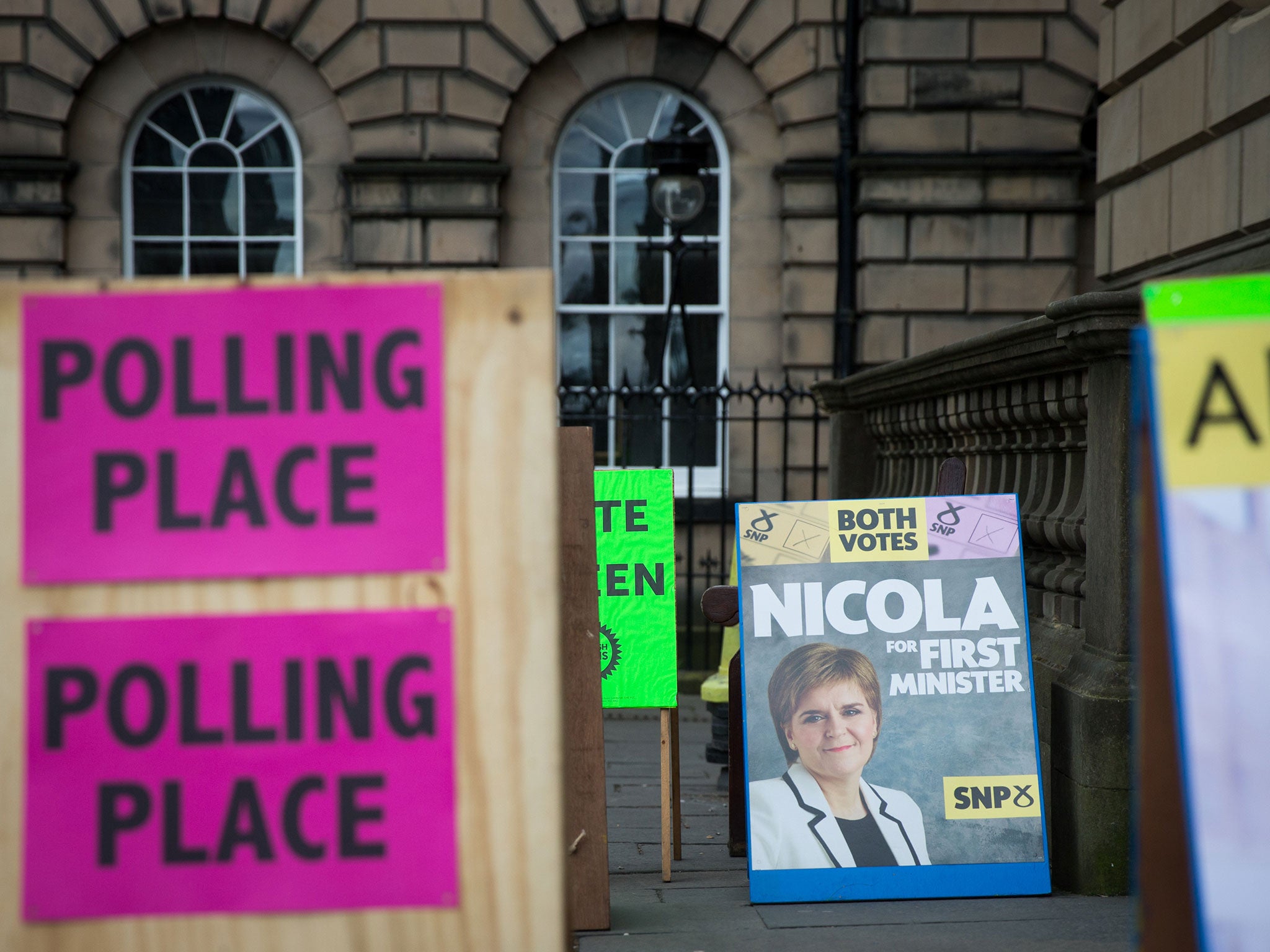Local elections 2016: How far is Scotland from its next independence referendum?
First Minister, Nicola Sturgeon, says another vote on the issue is ‘more likely than not’ in the coming parliament

A burly man in a tartan kilt was playing the bagpipes outside Edinburgh’s central Waverley station. With the SNP again set to form the next Scottish government, the issue of independence has made its way back to the fore. Nicola Sturgeon herself has said another vote on the issue is “more likely than not” in the coming parliament.
A walking symbol of Scottish identity, the piper seemed slightly uncomfortable when asked what he thought about another vote. He considered for a moment before declining to give a view, and going back to his pipes.
In one sense, the man spoke for much of Scotland. A year and a half after a referendum that was marked by ill feeling and stories of families split down the middle, the country seems to be taking its time to reflect. Despite huge and growing support for the pro-independence Scottish National Party and its allies, support for a second referendum hasn’t seen a similar surge. While discussion of independence on social media can be dominated by loud zealotry on both sides, all of the people The Independent approached for comment in central Edinburgh on polling day took a more measured approach.
Peter Mountford-Smith was leafleting on Princes Street. Now a Green Party activist, Mr Mountford-Smith was for eight years a Labour councillor, a party he campaigned with for two decades.
Though the Greens support independence, he’s also cautious about the country hosting a second referendum: “Personally, not straight away – I think something major would have to change and we’d also have to have some clear ideas about things like currency. To be honest, what the SNP were putting forward last time around was absolute nonsense – they were totally confused about currency issues.” At the last referendum the SNP cautiously advocated the retention of the pound, rejecting proposals for an independent currency or eurozone membership.
But Mr Mountford-Smith was relaxed about an SNP victory, and doesn’t think the nationalists would rush into a second vote, arguing that “their trademark at the moment seems to be caution”.
The Greens themselves would back a referendum if a petition of a million signatures demanded one. The Tories have put blocking another referendum at the forefront of their campaign, while Labour also says Scots have “moved on”.
The picture on the ground is more complicated: support for another vote isn’t just confined to die-hard nationalists. The Scottish political landscape has changed dramatically in the past couple of years – with polls suggesting the once-spurned Conservatives are vying for second place in yesterday’s elections, and formerly dominant Labour bouncing along the bottom.
Martin Mcafferey, a student at St Andrews, voted to remain in the UK at the last referendum, but thinks the SNP’s surge in popularity since then raises further questions.
“I’d be massively intrigued [about another referendum]. I think it’s probably something that should happen because the last one was so unclear – the result, but then what the SNP surge at the general election afterwards meant,” he said. “It would be interesting to just resolve the question – I’m not quite sure which way I’d vote but I might change towards independence, when I wasn’t before.”
He, too, wasn’t concerned about the SNP taking liberties with another plebiscite – he suggests politicians at Westminster with “no desire” to give Scots another say would probably block one, anyway. For a party founded with the intention of creating an independent Scotland, the SNP have done a marvellous job of convincing the Scottish public they’re not obsessive single-issuers.
In pictures: Local elections 2016
Show all 10In the Scottish capital, the European Union referendum result is also being watched closely. During the campaign Sturgeon said Brexit would “almost certainly” trigger another independence vote to prevent staunchly Europhile Scotland from being dragged out of the bloc against its will. Polls suggest Scottish voters are on the same page – an Ipsos MORI poll from February found voters backing independence by 55 per cent to 36 if EU exit occurred – the biggest margin for the Yes camp in recent memory.
A second referendum hasn’t been the top issue at this campaign, and most of the voters The Independent spoke to didn’t seem preoccupied by it. Rather, the various parties have been comparing ideas on how to use the new tax-raising powers given to Scotland by Westminster, and getting to grips with their place under the SNP’s newfound dominance. But just below the surface, the question of independence is still there, and not going away.
Subscribe to Independent Premium to bookmark this article
Want to bookmark your favourite articles and stories to read or reference later? Start your Independent Premium subscription today.

Join our commenting forum
Join thought-provoking conversations, follow other Independent readers and see their replies